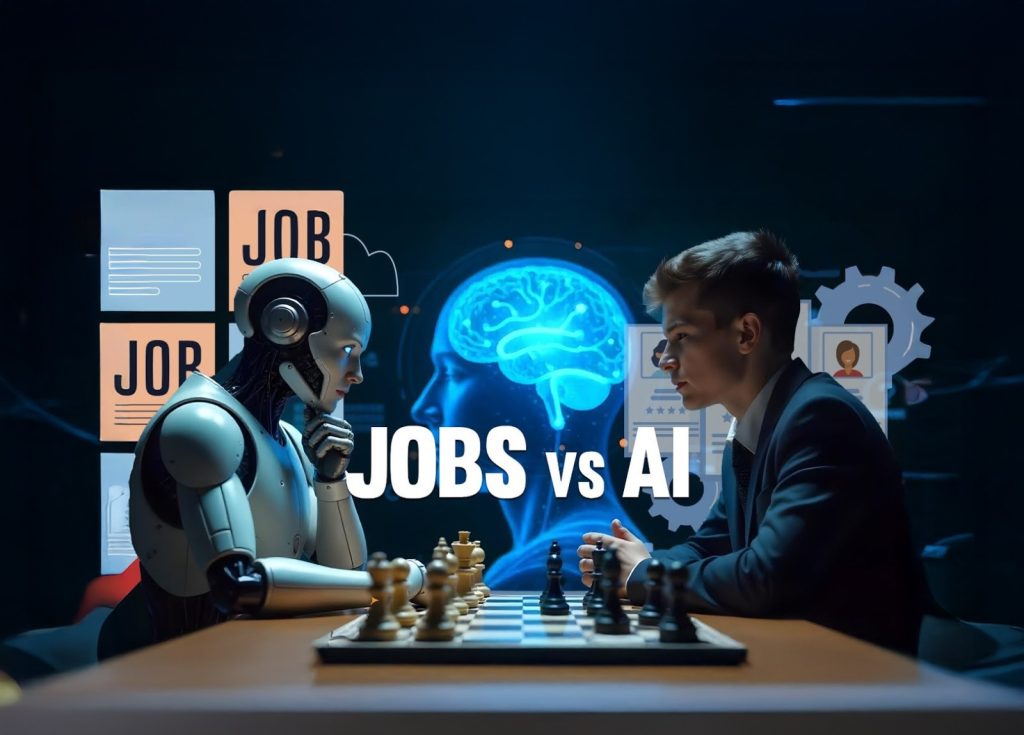AI Workforce Revolution: How AI Agents Will Change Your Job in 2025
The workplace is evolving faster than ever, and artificial intelligence (AI) agents are at the center of this transformation. By 2025, AI won’t just be a “tool” in the background—it will act as a digital collaborator, reshaping how employees and organizations operate. Far from simply replacing humans, AI agents are poised to automate repetitive tasks, augment decision-making, and empower people to focus on creativity, empathy, and strategy.
In this blog, let’s explore how AI is revolutionizing the workforce, what it means for your career, and—most importantly—how you can thrive in this new era.
What Happens to Humans?
Whenever AI and jobs come up, the big question is: Will AI replace humans? The reality is more nuanced. According to McKinsey (2024), while up to 30% of work hours could be automated by 2030, most roles will evolve rather than disappear. Humans will remain critical for problem-solving, leadership, and tasks requiring emotional intelligence.
Instead of mass replacement, think of AI as a teammate—handling tedious processes like scheduling, data analysis, and compliance—while freeing humans to focus on what truly adds value
New Skills for the AI Era
The future of work isn’t about coding for everyone; it’s about collaborating with AI. Skills such as critical thinking, adaptability, digital literacy, and emotional intelligence will be in high demand (World Economic Forum, 2023).
MIT Sloan Management Review (2024) emphasizes “AI fluency”—understanding what AI can and cannot do—as the new must-have skill for managers and employees alike.
The Bigger Picture
AI isn’t just changing jobs—it’s redefining entire industries. In healthcare, AI agents assist in diagnosis and patient monitoring, reducing burnout for clinicians (Topol, 2019). In retail, AI enhances personalization, leading to seamless customer experiences (Marr, 2023). In manufacturing, AI-powered predictive maintenance reduces downtime and costs (PwC, 2023).
What’s happening is nothing short of a structural shift—a new stage of the “Fourth Industrial Revolution” (Schwab, 2017).
AI in Action Across Industries
Healthcare: AI helps doctors analyze scans and predict treatment outcomes (Topol, 2019).
Finance: AI agents flag fraud and optimize portfolios in real time (PwC, 2023).
Retail: Personalized AI chatbots boost customer engagement (Marr, 2023).
Energy & Climate: AI drives efficiency and supports sustainability goals (United Nations, 2024).
Each example demonstrates the same principle: AI doesn’t eliminate roles but transforms them.
AI vs. Humans: Who Wins?
The short answer: both. Davenport and Kirby (2016) argue that smart machines don’t render humans obsolete—they make humans more effective when both sides collaborate.
Accenture (2024) echoes this, noting that companies leading in AI adoption focus not only on automation but also on collaboration—where humans and AI agents complement each other’s strengths.
The Bright Side: New Opportunities
AI will eliminate some roles, but it will create new ones too. The World Economic Forum (2023) predicts 69 million new jobs by 2027 in fields like data analysis, sustainability, and AI governance. Entirely new career paths—AI ethics officers, prompt engineers, and human-AI interaction designers—are emerging.
As Brynjolfsson and McAfee (2017) put it, AI opens “platform opportunities,” allowing individuals and businesses to leverage global networks and scale creativity.
How You Can Thrive
Here’s how to future-proof your career:
Embrace Lifelong Learning – Upskill regularly with digital tools and AI-related training.
Cultivate Human Skills – Creativity, collaboration, and emotional intelligence are irreplaceable.
Adopt a Growth Mindset – See AI as an enabler, not a competitor.
Experiment with AI Tools – From workplace assistants to AI-driven analytics, get hands-on.

As Thomas Davenport and Julia Kirby (2016) highlight, the winners in this new age will be those who learn to “step up” and use AI as leverage, rather than resisting it.
Final Thoughts
The AI workforce revolution in 2025 isn’t about machines versus humans—it’s about synergy. AI agents are already reshaping industries, and the most successful professionals will be those who adapt, learn, and thrive alongside them.
The future of work is not a threat. It’s an opportunity—if you’re ready to seize it.
For further assistance, visit our channel and refer the video
AI Workforce Revolution: How AI Agents Will Change Your Job in 2025

REFERENCES
- Accenture. AI and Human Collaboration: Driving Business Success. 2024. Accessed 17 Jan. 2025. https://www.accenture.com.
- Brynjolfsson, Erik, and Andrew McAfee. Machine, Platform, Crowd: Harnessing Our Digital Future. W.W. Norton & Company, 2017.
- Davenport, Thomas H., and Julia Kirby. Only Humans Need Apply: Winners and Losers in the Age of Smart Machines. HarperBusiness, 2016.
- Marr, Bernard. “How AI is Enhancing Retail Customer Experiences.” Forbes, 2023. Accessed 17 Jan. 2025. https://www.forbes.com.
- McKinsey & Company. The State of AI in 2024: Trends and Impact Across Industries. 2024. Accessed 17 Jan. 2025. https://www.mckinsey.com.
- MIT Sloan Management Review. “Upskilling for AI: A Manager’s Guide.” MIT Sloan Management Review, 2024. Accessed 17 Jan. 2025. https://sloanreview.mit.edu.
- PwC. AI Predictions 2023: How AI Will Transform Business. 2023. Accessed 17 Jan. 2025. https://www.pwc.com.
- Schwab, Klaus. The Fourth Industrial Revolution. World Economic Forum, 2017.
- Topol, Eric. Deep Medicine: How Artificial Intelligence Can Make Healthcare Human Again. Basic Books, 2019.
- United Nations. AI for Global Good: Tackling Climate Change and Beyond. 2024. Accessed 17 Jan. 2025. https://www.un.org.
- World Economic Forum. Future of Jobs Report 2023. 2023. Accessed 17 Jan. 2025. https://www.weforum.org.
Share This :

